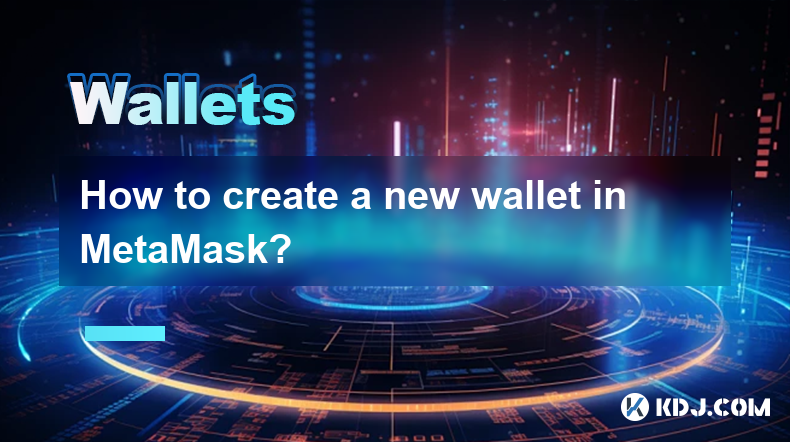-
 Bitcoin
Bitcoin $100,808.2541
-1.45% -
 Ethereum
Ethereum $3,138.1646
-4.54% -
 XRP
XRP $2.8958
-4.85% -
 Tether USDt
Tether USDt $0.9999
0.00% -
 Solana
Solana $216.2235
-6.36% -
 BNB
BNB $656.6643
-2.99% -
 USDC
USDC $0.9999
-0.04% -
 Dogecoin
Dogecoin $0.3087
-6.16% -
 Cardano
Cardano $0.9056
-4.26% -
 TRON
TRON $0.2454
-3.48% -
 Chainlink
Chainlink $23.1458
-7.76% -
 Avalanche
Avalanche $32.4165
-5.85% -
 Stellar
Stellar $0.3952
-4.48% -
 Sui
Sui $3.7919
-7.73% -
 Toncoin
Toncoin $4.7006
-2.36% -
 Hedera
Hedera $0.2875
-6.16% -
 Shiba Inu
Shiba Inu $0.0...01786
-5.20% -
 Polkadot
Polkadot $5.9914
-5.82% -
 UNUS SED LEO
UNUS SED LEO $9.7754
0.01% -
 Litecoin
Litecoin $119.2831
-6.50% -
 Bitget Token
Bitget Token $6.8249
-2.23% -
 Bitcoin Cash
Bitcoin Cash $406.8672
-4.29% -
 Hyperliquid
Hyperliquid $24.0441
-12.05% -
 Uniswap
Uniswap $11.0102
-6.85% -
 Ethena USDe
Ethena USDe $1.0009
-0.01% -
 Dai
Dai $0.9999
-0.02% -
 Pepe
Pepe $0.0...01228
-11.01% -
 NEAR Protocol
NEAR Protocol $4.3093
-6.80% -
 MANTRA
MANTRA $5.2426
-0.61% -
 Aave
Aave $299.2181
-10.74%
What does blockchain coin wallet address mean?
Blockchain coin wallet addresses, akin to digital fingerprints, facilitate secure cryptocurrency transactions, with public addresses for receiving funds and private keys safeguarding access.
Jan 11, 2025 at 10:40 am

Key Points:
- Understanding Blockchain Technology and Cryptocurrency
- Types of Blockchain Coin Wallet Addresses
- Generating and Managing Blockchain Coin Wallet Addresses
- Sending and Receiving Cryptocurrencies Using Addresses
- Security Best Practices for Managing Addresses
Understanding Blockchain Technology and Cryptocurrency
Blockchain technology forms the foundation of cryptocurrencies, providing a secure and decentralized digital ledger. It comprises a network of nodes that maintains a constantly growing list of transaction records, known as blocks. Cryptocurrencies, such as Bitcoin and Ethereum, are digital assets operating on blockchain technology, allowing for secure and transparent transactions.
Types of Blockchain Coin Wallet Addresses
Blockchain coin wallet addresses are unique alphanumeric codes associated with cryptocurrency accounts. They serve as the destination for sending and receiving funds. There are two main types of addresses:
- Public Address: Also known as a receiving address, this is a publicly accessible code that users share with others to receive cryptocurrencies. It is analogous to a bank account number.
- Private Key: A secret code that gives the owner access to their funds stored in a blockchain wallet. It is essential to keep this code confidential to prevent unauthorized access.
Generating and Managing Blockchain Coin Wallet Addresses
Generating a blockchain coin wallet address involves using a cryptocurrency wallet software or hardware device. These tools provide secure platforms for storing private keys and generating public addresses. Proper management of addresses is crucial to protect funds. Best practices include backing up private keys, enabling two-factor authentication, and regularly changing passwords.
Sending and Receiving Cryptocurrencies Using Addresses
To send cryptocurrencies, users must input the recipient's public address in their wallet and specify the amount to transfer. The transaction is then broadcast to the blockchain network for verification. Upon confirmation, the funds are transferred from the sender's to the recipient's wallet. Receiving cryptocurrencies requires sharing the public address with the sender, who can then initiate a transfer transaction.
Security Best Practices for Managing Addresses
Securing blockchain coin wallet addresses is paramount to safeguard user funds. Recommended practices include:
- Avoid Sharing Private Keys: Never share private keys with anyone, as it grants complete access to funds.
- Use Strong Passwords: Choose complex and unique passwords for cryptocurrency wallets and related accounts.
- Enable Two-Factor Authentication: Add an extra layer of security by requiring two different verification methods when accessing wallets.
- Store Private Keys Securely: Store private keys safely offline, such as on a hardware wallet or a physical backup like a printout.
- Monitor Transactions: Regularly check wallet history for suspicious activity and report any unauthorized transactions promptly.
FAQs:
Q: What is the difference between a public address and a private key?
A: A public address is shared publicly for receiving cryptocurrencies, similar to a bank account number. A private key is a secret code that provides access to funds and must be kept confidential.
Q: Is it safe to share a public address?
A: Yes, it is safe to share a public address with others, as it only allows them to send funds to your wallet.
Q: How do I protect my private key?
A: Store your private key securely offline, use strong passwords, and enable two-factor authentication for improved security.
Q: What happens if I lose my private key?
A: Losing a private key means losing access to the corresponding funds. It is recommended to create backups and store them in multiple secure locations.
Q: Can I change my blockchain coin wallet address?
A: Yes, it is possible to generate new blockchain coin wallet addresses using a cryptocurrency wallet. However, ensure that the new addresses are properly secured and backed up.
Q: What is a common mistake to avoid when using blockchain coin wallet addresses?
A: A common mistake is sharing private keys with others, which compromises the security of your funds. Always keep private keys confidential.
Disclaimer:info@kdj.com
The information provided is not trading advice. kdj.com does not assume any responsibility for any investments made based on the information provided in this article. Cryptocurrencies are highly volatile and it is highly recommended that you invest with caution after thorough research!
If you believe that the content used on this website infringes your copyright, please contact us immediately (info@kdj.com) and we will delete it promptly.
- XRP Price Analysis: Bearish Trajectory Crystallizes as Support at $2.95 Falters
- 2025-02-02 07:00:57
- MicroStrategy's Bold Move: Are They Setting the Stage for a Bitcoin Revolution?
- 2025-02-02 07:00:57
- Why Invest in Remittix (RTX)? A New Cryptocurrency Bridging the Gap Between Crypto and Traditional Finance
- 2025-02-02 07:00:57
- Trump Team’s Crypto Flirtation Is Much More Dangerous Than Cabinet Picks
- 2025-02-02 07:00:57
- The Impact of Growing Stablecoins On Bitcoin and Crypto Prices
- 2025-02-02 07:00:57
- Bitcoin (BTC) Has More Room to Run Based on This On-Chain Indicator, Analytics Firm Glassnode Believes
- 2025-02-02 07:00:57
Related knowledge

How to create a new wallet in MetaMask?
Feb 02,2025 at 01:18am
Key Points:MetaMask is a popular cryptocurrency wallet that allows users to store, send, and receive cryptocurrencies.Creating a new MetaMask wallet is simple and can be done in just a few minutes.MetaMask wallets are secure and feature a variety of security measures to protect user funds.MetaMask wallets are versatile and can be used to access a wide r...

What is SLIP39?
Feb 01,2025 at 09:48pm
Key Points:SLIP39: An Enhanced Standard for Enhancing Mnemonic SecurityComparison of SLIP39 with Existing Mnemonic StandardsAdvantages of Adopting SLIP39 for Improved SecurityCommon Challenges and Mitigations in Using SLIP39Best Practices for Implementing SLIP39 in Cryptocurrency WalletsFAQs on SLIP39 (Security, Compatibility, Implementation)What is SLI...

What is BIP39?
Feb 02,2025 at 05:18am
Key Points:BIP39 is a hierarchical deterministic (HD) wallet standard that generates a seed from a mnemonic phrase.The seed can be used to derive unlimited sets of private keys and addresses.BIP39 enhances security by utilizing a 12-24 word mnemonic phrase.*Mnemonic phrases can be recovered if lost, even with compromised private keys.*BIP39 supports var...

What does a multi-signature wallet mean?
Feb 01,2025 at 08:31pm
Key Points:What is a Multi-Signature Wallet?Types of Multi-Signature WalletsBenefits of Multi-Signature WalletsSecurity Considerations for Multi-Signature WalletsCreating a Multi-Signature WalletWhat is a Multi-Signature Wallet?A multi-signature wallet is a cryptocurrency wallet that requires multiple private keys to authorize transactions. This adds an...

How many mnemonics are there?
Feb 01,2025 at 11:18pm
Key Points:The number of mnemonic passphrases depends on the number of words in the passphrase and the size of the mnemonic word list.Mnemonic passphrases can range from 12 to 24 words in length.The largest mnemonic word list contains over 2048 words.A 12-word mnemonic passphrase provides approximately 2^128 possible combinations.A 24-word mnemonic pass...

Where can I see the OKX wallet private key?
Feb 02,2025 at 01:06am
Key Points:The OKX wallet provides multiple security measures to safeguard your funds.Your private key is crucial for accessing your wallet and funds, so its security is paramount.OKX offers three methods to access your private key: Keystore, Mnemonic Phrase, and OKX API Key.How to View Your Private Key in the OKX WalletMethod 1: KeystoreAccess your OKX...

How to create a new wallet in MetaMask?
Feb 02,2025 at 01:18am
Key Points:MetaMask is a popular cryptocurrency wallet that allows users to store, send, and receive cryptocurrencies.Creating a new MetaMask wallet is simple and can be done in just a few minutes.MetaMask wallets are secure and feature a variety of security measures to protect user funds.MetaMask wallets are versatile and can be used to access a wide r...

What is SLIP39?
Feb 01,2025 at 09:48pm
Key Points:SLIP39: An Enhanced Standard for Enhancing Mnemonic SecurityComparison of SLIP39 with Existing Mnemonic StandardsAdvantages of Adopting SLIP39 for Improved SecurityCommon Challenges and Mitigations in Using SLIP39Best Practices for Implementing SLIP39 in Cryptocurrency WalletsFAQs on SLIP39 (Security, Compatibility, Implementation)What is SLI...

What is BIP39?
Feb 02,2025 at 05:18am
Key Points:BIP39 is a hierarchical deterministic (HD) wallet standard that generates a seed from a mnemonic phrase.The seed can be used to derive unlimited sets of private keys and addresses.BIP39 enhances security by utilizing a 12-24 word mnemonic phrase.*Mnemonic phrases can be recovered if lost, even with compromised private keys.*BIP39 supports var...

What does a multi-signature wallet mean?
Feb 01,2025 at 08:31pm
Key Points:What is a Multi-Signature Wallet?Types of Multi-Signature WalletsBenefits of Multi-Signature WalletsSecurity Considerations for Multi-Signature WalletsCreating a Multi-Signature WalletWhat is a Multi-Signature Wallet?A multi-signature wallet is a cryptocurrency wallet that requires multiple private keys to authorize transactions. This adds an...

How many mnemonics are there?
Feb 01,2025 at 11:18pm
Key Points:The number of mnemonic passphrases depends on the number of words in the passphrase and the size of the mnemonic word list.Mnemonic passphrases can range from 12 to 24 words in length.The largest mnemonic word list contains over 2048 words.A 12-word mnemonic passphrase provides approximately 2^128 possible combinations.A 24-word mnemonic pass...

Where can I see the OKX wallet private key?
Feb 02,2025 at 01:06am
Key Points:The OKX wallet provides multiple security measures to safeguard your funds.Your private key is crucial for accessing your wallet and funds, so its security is paramount.OKX offers three methods to access your private key: Keystore, Mnemonic Phrase, and OKX API Key.How to View Your Private Key in the OKX WalletMethod 1: KeystoreAccess your OKX...
See all articles

























































































